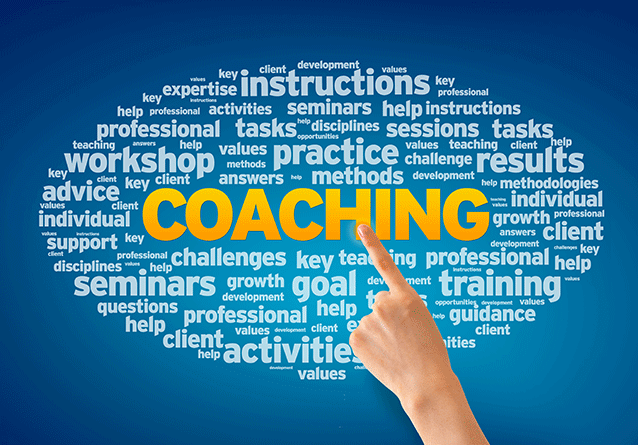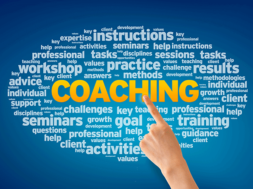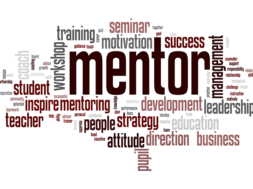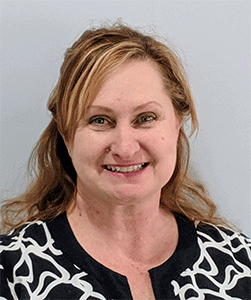
Academic Coaching: A Partnership for Success
By Tina D. Barbour Taylor, Ph.D., MSN, RN, Nursing Faculty/Academic Coach, Fortis Institute Pensacola, Florida
Educational contexts today must provide education to a diverse range of students with a variety of different learning needs. Some students may have recently graduated from high school, whereas some may not have attended a class in the last 15 years or so. There may be language barriers, cultural barriers, or other barriers present that hinder a student’s learning. Student success with the variability listed can be a challenging aspect for instructors to tackle. Most learning institutions offer tutoring; however, tutoring alone is not always adequate to address a student’s educational concerns. Now educational facilities are leaning on the expertise of academic coaches to help promote more positive student outcomes.
Academic coaching is an individualized process that addresses a student’s concerns, sets a plan to promote learning, and then executes it.
It goes beyond tutoring by building a relationship of trust, respect, and open communication between the academic coach and the student. A partnership is developed between the academic coach and the student. The academic coach provides students with a wide range of resources, assists in the development of a map for success, and seamlessly supplements the sources already available. In other words: it’s modular enough to work with what already exists, and enough to provide what isn’t there.
An academic coach can be a faculty member who is assigned to a student or it can be an individual hired specifically for the purpose of academic coaching. Referrals to an academic coach are usually sent by a faculty member or a course leader who feels the student would benefit from academic coaching. Referrals are typical for students who are struggling with a class and who may need assistance with strategies to help pass the course. Students are also free to schedule an appointment with the academic coach at any point in time that they feel they have a need that the academic coach can assist with. Sometimes a student may schedule an appointment to see an academic coach because they feel that they have not done well on a particular test or need help with a particular topic; however, students may also schedule to see an academic coach for stress management exercises to assist with decreasing their anxiety levels.
The academic coaching process starts with a meeting between the student and the academic coach to identify strengths and needs. This is usually done by having the student complete a learning assessment. Goals are set for both short- and long-term periods during the term, with an emphasis on those most measurable and attainable. Objectives are designed so that the student can reach each goal adequately. A sequenced time frame is established and charted out for the student, with goals being revisited frequently to make sure the student is staying on track – promoting future successes. Educational resources are provided to the students to help them achieve their goals. Cognitive strategies, learning strategies, motivational strategies, organizational skills, and time management approaches are incorporated into the process to ensure the student can meet the objectives and goals as planned out in the initial and on-going meetings.
Cognitive strategies are various methods used to assist people in retaining and learning information. They are used when learning the information “as is,” takes a great effort by the student. Cognitive strategies bridge the gap between the knowledge needing to be learned by providing a way for the brain to retain and recall information more rapidly and efficiently. Cognitive strategies can be simple such as a mnemonic, or they can be more complex; such as summarizing meanings or making predictions. Dual coding is another cognitive strategy that can increase a student’s ability to retain information and apply concepts to practice. By combining visual supports such as graphs, charts, pictures, and figures along with verbal material, it gives the brain two ways to remember the material. Rehearsal, elaboration, imagery, visualization, and mind mapping are other forms of common cognitive strategies. Most cognitive strategies occur in a step by step or sequenced format and learning is scaffolded from the previous schema to build from a novice knowledge base to a more complex one. Cognitive strategies give the student the ability to retain information that is learned and recall it more easily.
Learning strategies are a bit different from cognitive strategies. Learning strategies are things such as study tips and test taking strategies. They are important for students to master for successful learning. One learning strategy is note taking methods. Note taking methods are of significant importance and should be designed specifically for each course the student is taking. An outline note taking method may work well for a history course, whereas the Cornell method may be more useful for a language course. Other learning strategies can be as easy as making lists or tables to assist a student with having the most needed information readily available. Each learning strategy should be individualized to the student and to the course.
Motivation is one of the biggest issues an academic coach may face. Although the instructor may have a perfect lesson planned out, if the student is not motivated, then they will not learn. Instructors are disheartened when students state that they are disinterested in a subject, or that they don’t have the enthusiasm to study or prepare for class.
To promote student motivation, the academic coach should approach students falling into this category by promoting a growth mindset over a fixed mindset.
Motivation can be increased by such a basic thing as changing the way a person thinks about their education and future from the stance of “being stuck where I am” versus a “reachable future goal I can attain if I continue my education.” Establishing high expectations, with goals and objectives to reach them, along with providing inspiration are all resources to aid in boosting motivation.
Organizational skills are a key component of student success. If a student is unorganized, they miss deadlines and do not plan appropriately for events such as tests or projects. The student then becomes overwhelmed and is likely to have a poor outcome. Academic coaches recommend different techniques for students to promote organizational skills. For example, using one calendar to track all events and due dates can help to keep the student on track. Organizing a notebook with different sections for syllabi, handouts, homework, and notes is also important. Making everything easily accessible and ordered tends to decrease the frustration and anxiety students feel from being disorganized.
Time management is often a difficult task for students. Most career students have a job and family, as well as schoolwork. Juggling life circumstances, career, and school can be a daunting task for most. Academic coaches assist students with balancing these tasks. The first step is to figure out where the time in a student’s day goes. Determining how many hours are spent at work, at home, at school, or doing recreational activities is crucial to aid the student with time management. Once a time assessment has been completed, the academic coach makes recommendations to support the student with time management skills. Concepts such as scheduled study times assist students with routinely studying, which will naturally result in better learning outcomes. Most importantly, it promotes making studying a habit. Prioritizing tasks can prevent the student from becoming overwhelmed. Academic coaches encourage students to not procrastinate and to be aware of their day. With only 24 hours in a day, good time management skills can promote efficient use of that time and bolster student success.
Student success is of the utmost importance in higher education. However, some students have difficulties reaching success and tutoring alone is not always the answer. The academic coach role has allowed educational institutions to bridge the gap between student needs and positive academic outcomes by providing the student with an individualized roadmap to success. This is done by developing a partnership with the student through the development of trust and open communication. Resources are provided to the student so that they can receive the assistance needed to reach their goals and become successful.
The academic coach works with the student to provide an individualized plan for success. This starts with a student needs assessment to see where the student’s strengths and weaknesses may lie. Resources are then provided to get the student off on the right foot so to speak. Cognitive strategies, such as mnemonics, paraphrasing, and predicting, are used to assist the student with learning, retaining and recalling information. Learning strategies, such as study tips and note taking approaches, are incorporated to support the student with learning the information successfully. Organizational skills are taught to the student so that the student can arrange material so that it is readily accessible. Time management skills are imparted to the student to help with juggling a busy schedule. Lastly, motivation is addressed by giving the student a planned roadmap to follow for success and encouragement is given when there are bumps along the road.
Student success is not only important for the student, but also to the institution. Academic coaches facilitate improvement in retention rates by playing an active role with the student.
The student feels important and like they matter when an academic coach takes time with them, is empathetic to their unique situation, and assists in finding a plan that will work for them to be successful.
Therefore, higher education institutions get a two-fold benefit from hiring academic coaches. Student satisfaction rates go up and retention rates improve.
All in all, an academic coach and student partnership is an earmark to success. Traversing the murky waters of higher education can be intimidating for some, especially if it is a person who has had challenges with academics in the past, or who has just been out of school for a while and is now returning. An academic coach acts as a proverbial safety net for these students. They help them to get anchored in a way that will promote their success and facilitate them reaching their destination or goal. Therefore, the benefit of an academic coach and student partnership should be considered in academia, as its advantages should outweigh the hindrances.
TINA D. BARBOUR-TAYLOR is a nursing instructor and academic coach at Fortis Institute in Pensacola, Florida. Tina is an active faculty member at Fortis Institute performing functions such as faculty mentoring, assisting with course development, and providing needed resources to students and faculty. Her research has included her dissertation work “The Effects of Nursing Program Simulation Experience Level and Type of Advanced Organizer on Clinical Judgment Performance, Satisfaction, Self-confidence, and Perceived Cognitive Load of Pre-licensure Nursing Students in Simulation Based Learning” as well as “Mobile County health needs assessment: A collaboration between University of South Alabama Medical Center and University of South Alabama Children’s and Women’s Hospital FY 2012-3013.”
Recognized for her commitment to nursing education, she received the Five-Star Faculty award from Fortis Institute in 2019 and was a recipient of the 2019 Circle of Excellence Award in Nursing from Educational Affiliates.
She received her Bachelor of Science in Nursing from the University of Mobile in Mobile, Alabama. She furthered her education by completing her Master of Science in Nursing Administration/Education from the University of Mobile; and her Ph.D. in Instructional Design and Development from the University of South Alabama in Mobile, Alabama.
Contact Information: Tina D. Barbour-Taylor, Ph.D., MSN, RN // Nursing Faculty/Academic Coach // Fortis Institute // 4081 E. Olive Road, Suite B, Pensacola, Florida 32514 // 850-476-7607 // TTaylor@fortisinstitute.edu











